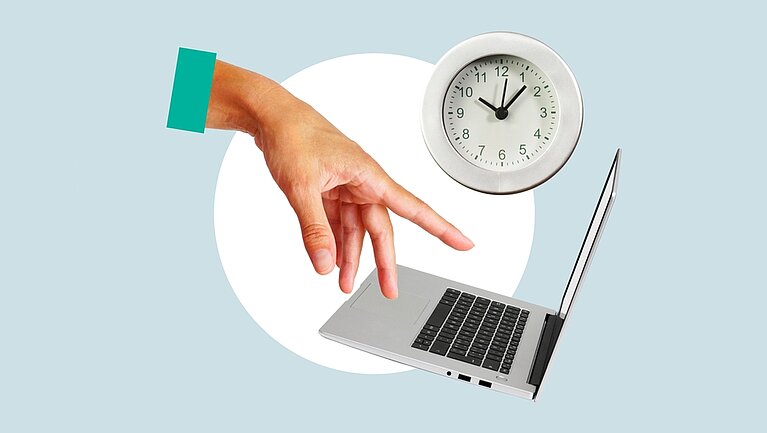When was the last time you put off an important task and only completed it at the very last minute? Around 20 percent of the world's population regularly fall into the behavioral pattern of putting off tasks or not completing them at all.
Procrastination is the scientific term for this phenomenon. This avoidance tactic does neither our bodies nor our psyches any good: it causes stress, a guilty conscience, wears on the nerves and costs much more energy than tackling to-dos on time.
With these tips, you'll beat your weaker self, work with more focus, tackle projects on time - and complete them on time and stress-free:
Set short-, medium- and long-term goals.
If you have a clear goal in mind, you know why and for what you are doing something - pure motivation! It is important to set a mix of short-, medium- and long-term goals. Short-term goals allow us to experience success on a regular basis, medium-term goals allow us to work in a structured and planned manner, and a long-term goal is the vision that we slowly but steadily approach with the many small and medium steps.
Structure and plan your working day
Break up large projects into several small subtasks. This reduces the mental hurdle to actually start working and helps you stay on top of things. Prioritize your tasks every morning and plan your day ahead - e.g. with the 90-90-1-rule or the Pomodoro technique.
Eliminate distractions
You're in the middle of a high-concentration period and suddenly the screen of your smartphone lights up - in all likelihood you'll look to see who's been texting and you'll be distracted not just for the moment, but permanently. Figure out what your distractors are. There may be other factors, such as work or personal problems, that weigh heavily on our minds and cause us to be unfocused and our thoughts to wander.
Take regular breaks
With all the planning and productivity, it's also important to take well-deserved breaks to switch off and recharge your batteries. Whether it's a walk in the fresh air, a coffee break with colleagues - interrupt your concentrated work regularly and get a motivational push to continue working on your goals after the short break.












